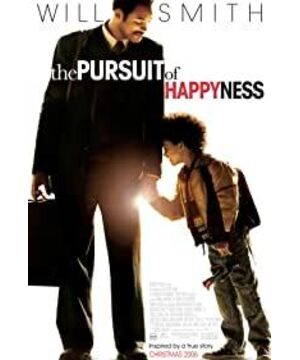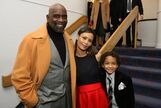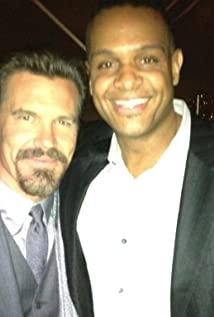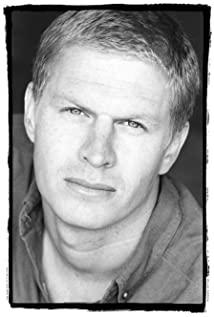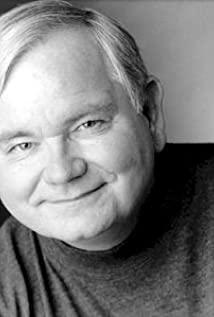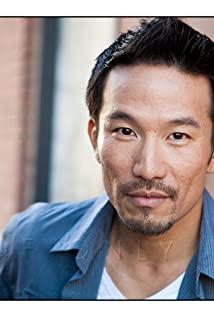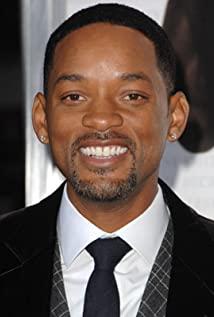In Zhou Xingchi's films and some variety shows, there is a bridge to test acting skills. The plot given is ups and downs: "Your wife gives birth to a child, your wife dies, the child is called Dad, and you find that the child has no butthole." And the person who was tested, Through exaggerated reactions, it presents a hilarious comedy effect. This routine may seem ridiculous, but it is often used in dramas: to drive the plot through the constant occurrence of accidents, to grab the audience .
"When Happiness Comes Knocking" is exactly that, and the name translates so well, it seems that as long as you sit on the sofa and watch TV, happiness will suddenly come to you. In fact, this is not the case. Everyone who has seen it knows how hard the male protagonist in the movie is. Happiness is only knocked by his own hands. He caught the accident that fate threw him again and again, and stood up hard.
Although I thought it was pretty good when I watched it before, but as a particularly "depressed" person, I instinctively rejected this kind of movie that was particularly inspirational and positive, and I liked "Little Sunshine". Had to say "mourning", so I gave it four stars. After a few years, I came back to watch it again and added a star. On the one hand, it was a good movie, and the script, performance, and rhythm were well grasped. On the other hand, I began to accept and appreciate those who I used to disdain. Gu's values and people.
After all, I have grown up too.
The first act begins gently, and the male protagonist's life is not easy, and according to the scriptwriter's routine, we know that he will get worse and worse. The madman chased after the male protagonist's medical equipment, saying it was a time machine, laying a fire for the tear gas behind him. Within a few minutes, the male protagonist's problems were as follows: 1. Financial constraints; 2. Tension in family relations; 3. Frustration in his career; and the line "paying taxes" when arguing with his wife also became a foreshadowing later. The TV show provided the backdrop for the economic downturn.
The triggering event of the first act appeared. The male protagonist discovered that the opportunity to change his fate was to be a stockbroker, and the core goal of the whole film appeared. Family life and the goal of being a stockbroker become two intersecting lines, and the closer to the goal, the worse the relationship with the wife. The rope of destiny begins to be pulled, showing the plot with constant rapid turns: the male protagonist finds hope - laughed at by his wife - fills in the interview - medical equipment is stolen - Chinatown kindergarten is unreliable - recovering the medical equipment - with his wife Cold War - Use Rubik's Cube to gain the interviewer's favor - No money to pay the fare to take the Bawang car, dumped the driver but lost the medical equipment again - Wife offered to leave - received a phone interview - jailed.
Accidents continue to hit the male protagonist and advance the plot. Soon, he ushered in the first turning point of fate : the interview was successful, his wife went to New York, and he needed to raise the children alone and accept unpaid internship wages. The actor decided to give it a go, and so far, the plot has firmly grasped the audience.
Being kicked out by the landlord, the father and son moved from the apartment to the motel, the actor said a golden sentence about his dream, and the screenwriter contributed a movie line worthy of screenshots . It is the core value of the whole film to say it through the mouths of the actors.
The male protagonist showed amazing perseverance and hard work. While selling instruments to earn living expenses, he also accepted high-intensity internships. What's more valuable is that the male protagonist insisted on taking care of his own children in order to make up for the lack of fatherly love before. After being hit by a car, not drinking water or hanging up in order to make more calls, and trying luck with heavy equipment, there is no reason why we don't like this kind of role. The average person gives up when the call is rejected, and the male protagonist is not an average person , he is the hero, and fate is the villain.
It is worth mentioning that in addition to persistence, the plot also shows that the male protagonist is good at dealing with people and sensitive to numbers. He is indeed suitable for the job of a stockbroker. Just because of education and poverty, they need to accept more tests than ordinary people. Don't give up if you have talent, but only if you do have talent.
After a relatively relaxed "middle point paragraph", just when I thought everything was going to get better, the male protagonist went bankrupt, and the second twist of fate appeared . He was emotional because 14 knives turned against a friend. Finally got the instrument back from the madman. This is the only meal money for the penniless father and son. It has also become a "time machine" for the two to spend the night in the subway. I found that I couldn't even stay here, and I was afraid that the knock on the door would wake up my son. The male protagonist's forbearance crying became a silent emotional climax. That's a few notches above the hysterical, screaming plot and acting.
No matter how hard life is, the male protagonist never gives up. In order to work harder than ordinary people through internships, to stop sleeping on the street to pick up his son and wait in line, to stay up all night to repair equipment to earn living expenses, and even sell blood. In the scene of the long queue at the relief agency, the director specially arranged for a luxury car to drive past. The people in the car looked extremely happy and happy. This cannot be roughly interpreted as "no money, no happiness" . If you give up your family, you have to take your son with you, and you have to earn money.
The rhythm slowed down again, and the father and son felt a rare peace by the sea. The male protagonist got the affirmation from his son, the light of the instrument finally lit up in the dark, everything really got better, he was told to beat everyone and got the job.
Will Smith's performance is really good. I almost forgot that he used to be a comedian. His frowning is like a father, a middle-aged man who is constantly being beaten by poverty and fate, and still tries his best to stand upright and defend his family. . There was confusion, exhaustion, self-esteem, grievance, smoothness, and tenacity in his eyes. He shook hands with everyone, walked in the crowd and shed tears of joy and happiness. A rubber band that was stretched to the limit finally loosened, and the film ended neatly .
In the past, I didn’t like people who lived too hard. Instead of being a strong and strong pillar, I wanted to be a muddy pool, basking in the sun on the road, but growing up is that you no longer hide in your comfort zone, if you used to be too weak Be brave, be gentle if you were too sharp before, overcome your desires, find your talent, persevere, and be a hero.
I hope we can all find something worth holding on to, even if we change ourselves, even if we sleep on the street, we can still shine in the dark.
View more about The Pursuit of Happyness reviews


